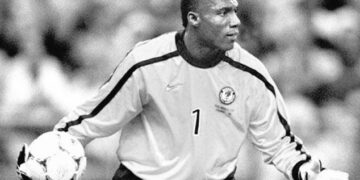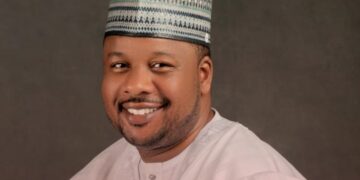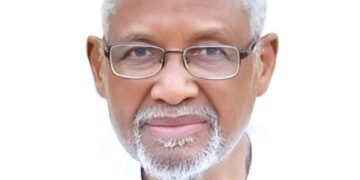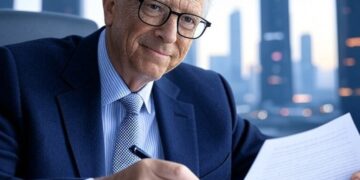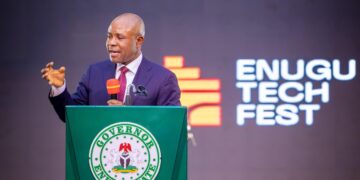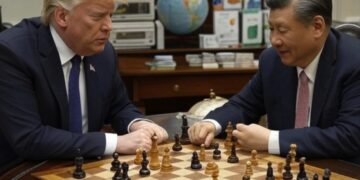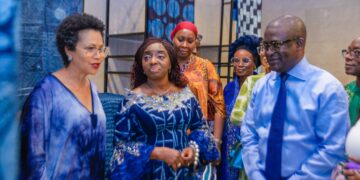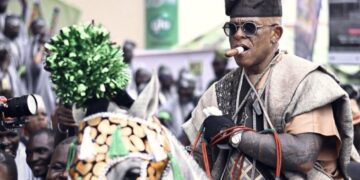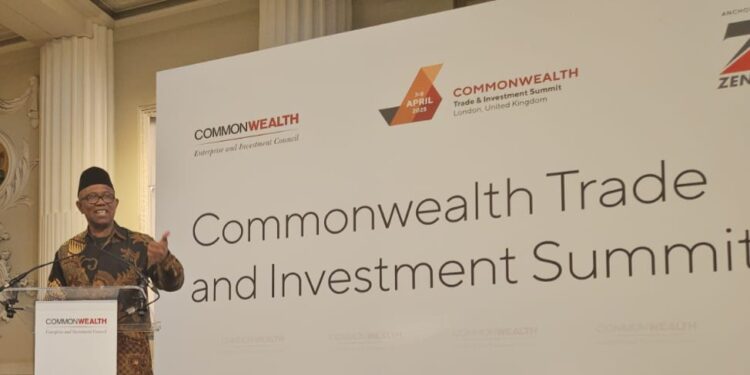London, April 08, 2025 – The Commonwealth Enterprise and Investment Council (CWEIC) Trade and Investment Summit 2025 convened today in London, bringing together global leaders, policymakers, and business influencers to discuss pressing economic challenges and opportunities. Among the distinguished speakers was Peter Obi, a prominent Nigerian politician and businessman, who delivered a compelling address on the topic “Africa’s Role in the New Global Economy.” His speech underscored Africa’s untapped potential and the urgent need for transformative leadership to harness it, especially in light of recent global economic disruptions driven by the policies of the 47th U.S. President, Donald Trump.
Africa’s Economic Potential: A Call to Action
Obi’s address painted a vivid picture of Africa as a continent brimming with opportunities yet hindered by stagnation. He noted that Africa, the world’s second-largest and most populous continent with approximately 1.5 billion people, commands only 2-3% of global trade and 3% of global GDP, according to the World Trade Organization (WTO). This starkly contrasts with Asia, where GDP per capita stands at $9,000 compared to Africa’s $1,900. “Africa’s global trade and GDP have been stagnant for over two decades,” Obi remarked, “despite its youthful workforce of over 1 billion and vast natural resources.”
Africa’s wealth in resources is undeniable. The continent holds over 60% of the world’s arable land—nearly a billion hectares of uncultivated potential—and approximately 30% of global mineral reserves. Obi emphasized that the agriculture sector alone could grow from a $280 billion annual market to over $1 trillion by 2030, positioning Africa as a global agricultural powerhouse and net food exporter. “This is the moment to leverage our youthful human capital and natural endowments to create a skilled workforce that drives productivity for Africa and the world,” he urged.
Navigating Trump’s Economic Disruptions
Obi highlighted the challenges posed by President Trump’s recent interventions, which have upended long-standing assumptions of the global economy. “Many countries are proactively securing their economies, but Africa has yet to respond with the same urgency,” he observed. With Trump’s policies likely to reshape global trade dynamics, Obi stressed that Africa must act decisively to profit from emerging systems. “We need to produce goods and services the world needs and be smart in leveraging whatever trade arrangements survive this disruption,” he said.
Leadership: The Missing Link
Central to Obi’s message was the critical role of leadership in unlocking Africa’s potential. “What is missing is leadership that can reorder priorities and scale up productivity,” he asserted. Drawing a contrast with Asia’s developmental states, which prioritized human capital and productivity, Obi critiqued Africa’s past reliance on imported Western economic models without adapting them to local realities. He called for a new era of leadership focused on innovative education, healthcare, and poverty alleviation to drive rapid upgrades in productive capacities.
“This is a junction for transformative change,” Obi concluded. “It’s time to rebuild African economies through bold, forward-thinking leadership that pulls millions out of poverty and positions the continent as a global economic force.”
Peter Obi: A Profile in Business and Politics
Peter Gregory Obi, born on July 19, 1961, in Onitsha, Anambra State, Nigeria, is a seasoned figure in both business and politics. A graduate of Philosophy from the University of Nigeria, Nsukka, Obi further honed his expertise at prestigious institutions like Lagos Business School, Harvard Business School, and the International Institute for Management Development in Switzerland. Before entering politics, he built a successful career in business, notably as Chairman of Fidelity Bank Plc and a key player in Nigeria’s corporate landscape, with investments in banking, manufacturing, and trading.
Obi’s political journey began in 2003 when he contested the governorship of Anambra State under the All-Progressives Grand Alliance (APGA). After a legal battle overturned his opponent’s initial victory, he assumed office on March 17, 2006. His tenure, which lasted until 2014, is widely regarded as a benchmark for good governance in Nigeria. Obi prioritized education—elevating Anambra to the top rank in national exams—healthcare, where he earned a Bill and Melinda Gates Foundation award for polio eradication, and infrastructure development, including industrial parks that attracted investments like SABMiller’s $100 million brewery and Innoson Motors’ pioneering vehicle manufacturing plant.
In 2022, Obi joined the Labour Party and ran as its presidential candidate in the 2023 Nigerian election, galvanizing a youth-driven movement known as the “Obidients” with his focus on frugality, economic production, and resource management. Though he did not win, his influence continues to grow, cementing his reputation as a pragmatic leader committed to economic transformation.
Implications for Stakeholders
Obi’s address at the CWEIC Summit resonates with stakeholders across sectors. For governments, it’s a clarion call to invest in human capital and agriculture to boost economic output. Businesses stand to benefit from Africa’s projected agricultural boom and resource wealth, provided they navigate the shifting global trade landscape. Civil society and international partners are urged to support innovative education and healthcare initiatives to lift communities out of poverty.
As the world grapples with economic uncertainty, Peter Obi’s vision offers a roadmap for Africa to not only survive but thrive in the new global economy. The question remains: will Africa’s leaders rise to the challenge?
ReplyForward |



